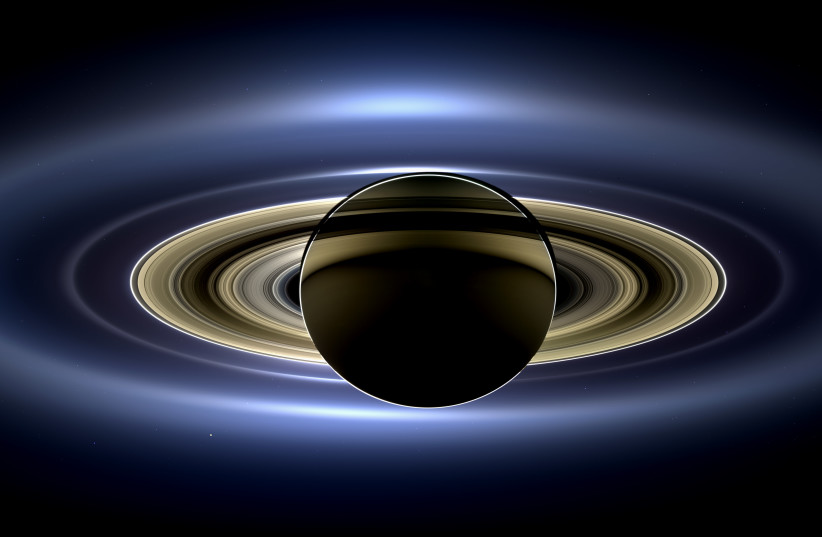Saturn's rings are relative babies on the cosmic scale, having formed less than 400 million years ago, according to a new study. In comparison, Saturn itself is about 4.5 billion years old and multicellular life appeared on Earth about 580 million years ago.
The peer-reviewed study, published in the journal Science Advances on Friday, was led by physicist Sascha Kempf at the University of Colorado Boulder.
For most of the 20th century, scientists assumed that the rings around Saturn were as old as the planet itself, but this idea ran into a few issues, including the relative cleanliness of the rings, which seem to be made up of about 98% pure water ice and only a tiny amount of rocky material.
"It's almost impossible to end up with something so clean," said Kempf.
The team led by Kempf decided to study the accumulation of dust in the rings in order to gauge their age. Tiny grains of rocky material flow through the solar system almost constantly, leaving behind a thin layer of dust in some cases.

Kempf and his team decided to study how rapidly the dust on Saturn's rings builds up, in order to calculate the rings' age.
"Think about the rings like the carpet in your house," said Kempf in a press release. "If you have a clean carpet laid out, you just have to wait. Dust will settle on your carpet. The same is true for the rings."
From 2004 to 2017, the researchers used the Cosmic Dust Analyzer on NASA's Cassini spacecraft to analyze specks of dust around Saturn. In 2017, the spacecraft purposefully crashed into Saturn's atmosphere.
While Cassini whizzed around the planet, the Cosmic Dust Analyzer, shaped like a bucket, collected 163 grains that had originated from beyond the planet's close neighborhood. This dust allowed the researchers to calculate the rings' age at a few hundred million years.
"We know approximately how old the rings are, but it doesn't solve any of our other problems," said Kempf. "We still don't know how these rings formed in the first place."
Not the first time studies have found Saturn's rings to be young
This isn't the first study to find that Saturn's rings are cosmic babies.
In 2019, scientists concluded that Saturn's rings are only 10-100 million years old in a study that also used data from the Cassini spacecraft.
Prof. Yohai Kaspi and Dr. Eli Galanti of the Earth and Planetary Sciences Department of the Weizmann Institute of Science in Rehovot conducted one of the final studies of Cassini’s mission and, along with researchers in the United States and Italy, were able to calculate the age of the planet’s rings, later publishing their findings in the journal Science.
Saturn's rings may not survive for very long
Saturn's rings, as young as they are, may be near the end of their lifespan.
In one study, NASA scientists reported that the ice in the rings is slowly raining down on Saturn and could disappear entirely within another 100 million years.
"If the rings are short-lived and dynamical, why are we seeing them now?" said Kempf. "It's too much luck."
